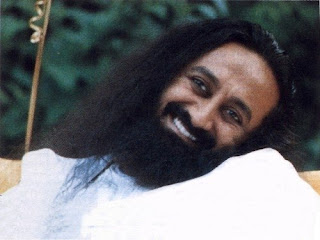Dr Vinod Kochupillai, head of the Cancer Centre at AIIMS, the premiere medical institute of India, explains the scientific aspect of Sudarshan Kriya:

"In today's society, psycho-neuroimmunology (PNI), often referred to as of mind-body importance, is becoming very popular. PNI shows how the mind and emotions influence both the nervous and immune systems. For instance, happy people produce chemical messengers, which travel from the nervous system to the immune system, resulting in better health.
Sudarshan kriya is a unique breathing process, which removes stress from the body. Negative toxins are flushed out and each cell is flooded with new life to energize body and mind. This experience of centeredness, freedom and fulfillment releases neuropeptides, which influence the immune system positively and hence, the whole physiology.
Both sudarshan kriya and pranayama have been researched in Nimhans, Bangalore, India, where it was found successful with 70-80 per cent patients suffering from severe depression. Abnormal brain wave patterns turned normal with regular practice.
Studies conducted at Harvard, USA, revealed that 70-80 per cent patients suffering from AIDS benefited from this process. Lymph node swellings decreased, pain was reduced, breathing and digestion improved, energy levels increased. The Republic of Slovenia conducted a research on patients suffering from multiple sclerosis. With sudarshan kriya, significant improvement was found in the patient's mobility, endurance levels and lung capacity while anxiety levels came down.
Ongoing studies at AIIMS suggest that these processes help cancer patients also. It also helps in controlling the urge to consume tobacco."
Also, CLICK HERE to download the PPT on 'The Benefits of Sudarshan Kriya' in respect of the research conducted by Dr Kochupillai.
Key findings of the latest research done on Sudarshan Kriya Yoga (SKY) in the World Conference held in Delhi:
Dr Richard Brown from the USA discussed how the application of newer technologies to basic research in Sudarshan Kriya Yoga (SKY) has thrown light on our understanding of how SKY works.
He postulated that SKY contributes to a state of alert calmness by its effect on the vagus nerve which is the core of the parasympathetic system. Recent studies have shown that the vagus nerve is crucial in social bonding, empathy and love; it is the centre of our gut instincts and is crucial to our ability to perceive, observe and make complex decisions.
Vagal activity is estimated from the respiratory sinus arrhythmia as measured by heart rate variability. Impaired vagal activity is found in people with depression, anxiety, panic disorders, irritable bowel syndrome, violent adults, fibromyalgia, post traumatic stress disorder, early Alzheimer's and obesity.
Nowadays, an instrument that artificially stimulates the vagus nerve is being used to treat depression, epilepsy, early Alzheimer's disease and is an experimental treatment for obesity.
Stephen Porges, the foremost expert on the activity of the vagus nerve on reviewing the research done on SKY has suggested that the different rhythms of breath in SKY may stimulate different diameter fibers of the vagus nerve. This makes SKY unique and likely to have a much wider range of effects than the currently available electronic vagus nerve stimulator. Dr Brown suggested that other mechanisms by which SKY works are by calming of stress response systems, neuroendocrine release of hormones, nitric oxide neurotransmission, fear conditioning circuits (prefrontal cortex and limbic system), and thalamic generators. He also discussed various knowledge points as articulated by Sri Sri Ravi Shankar from a neuro scientific perspective.
PS: More research on Prison Program Case Studies - Click here
